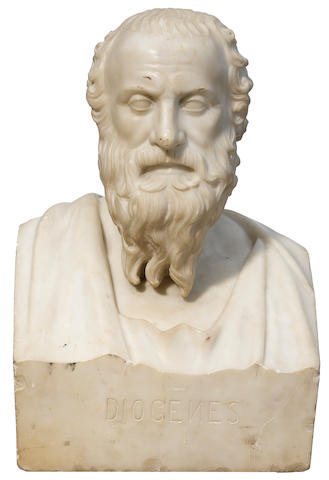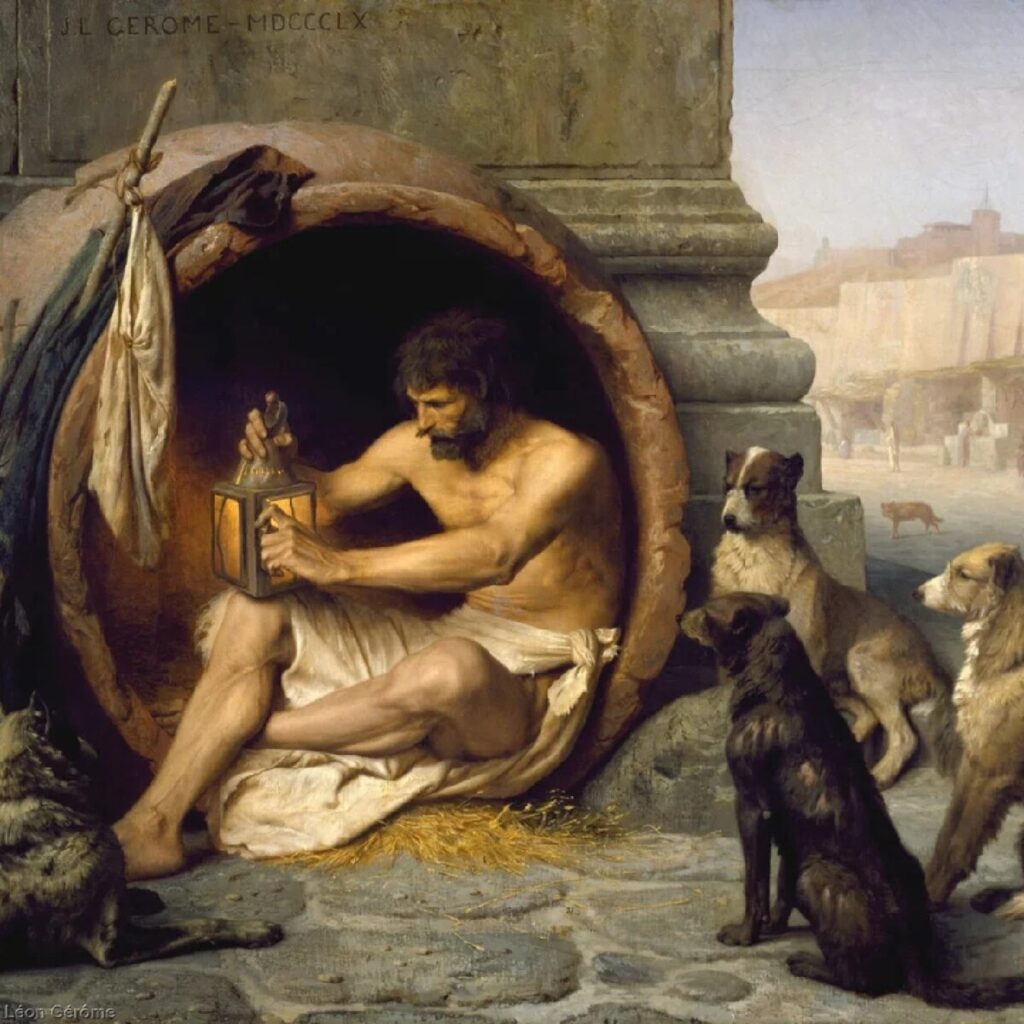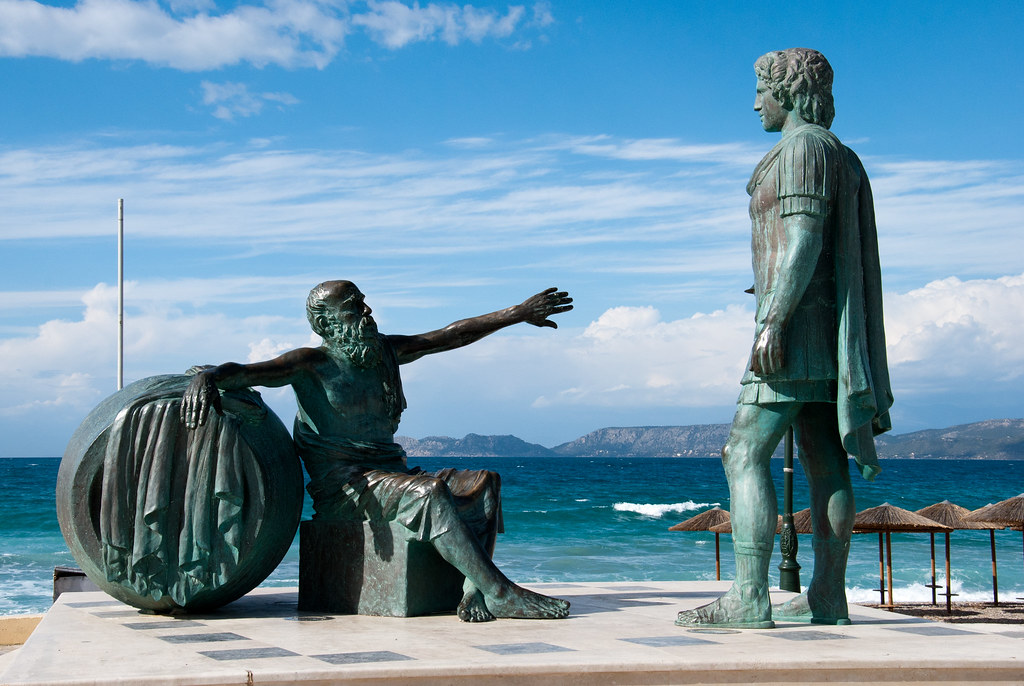

The famous ancient Greek philosopher Diogenes was born in the city of Sinop in 412 AD in the family of a money changer, and died in Corinth in 323 BC. To this day, many non-fictional and fictional stories, anecdotes and legends are told about Diogenes. In his youth, while in Delphi, after he asked a local Pythia “what kind of craft should I do in the future”, he received the answer: “start reassessing values”. To understand these initially incomprehensible words, the young man spent some time in his hometown and, finally, after moving to Athens, he entered the school of the local philosopher-cynic Antisthenes.

In Athens, in the process of ” reassessing values” Diogenes settled not far from the Agora, in a Pythos. “Pythos”is a large clay jug with a wide neck, in which the ancient Greeks stored wine, oil, grain and, like the ancestors of the Georgians, buried them in the ground. According to legend, local “hooligans” smashed Diogenes ‘ dwelling with a stone, but the townspeople presented the philosopher a new pythos. Later, the European oral tradition “settled” the thinker in a wooden barrel, although wooden barrels were not invented by mankind in ancient times, and Europeans who lived in the Middle Ages forgot about the existence of clay jugs…
Diogenes often argued with modern philosophers, among whom Plato was the most famous. After Plato declared that “man is a two-legged animal without feathers,” Diogenes plucked a rooster and sent it to the famous philosopher, accompanied by the remark — “Here is Plato’s man for you”. Plato, in turn, gave as good as he got, and called Diogenes “a Socrates who has lost his mind”… Diogenes argued with Plato’s view of the essence of things and events in the following words: “I see the cup, but I do not see its cupiness.”..
Wanting to shock his fellow citizens, Diogenes ate right on the street, which was completely unacceptable at that time (not to mention other, much more antisocial actions). One day he began to give a public lecture on a philosophical topic in the square, but no one paid attention to him. The offended philosopher began to tweet in a loud voice and a huge crowd immediately gathered around him. Diogenes made the inevitable diagnosis to the audience: “Athenians, this is the price of your mind! While I was sharing my clever thoughts with you, no one paid attention to me, and after I chirped like a meaningless bird, you stuck to me like flies!” According to one of the legends, Diogenes walked the streets in broad daylight with a lit lamp and explained this behavior by the desire to find a reasonable person… Once, captured by pirates, Diogenes was sold into slavery. During this period of his life, he engaged in the upbringing of the children of his slave owner. The followers expressed a desire to free the philosopher from slavery, but he refused: ”I still remain the master of my master here.”
Diogenes was the first to declare himself a “citizen of the world”, rejecting state borders, preaching the relativity of moral norms and speaking out against all power. According to legend, the philosopher died on the same day as Alexander the Great. During a personal meeting with the latter, the philosopher addressed the emperor with the historical phrase: “Stand aside a little, do not block the sun for me.”

The essence of Diogenes ‘ asceticism is easily expressed – true happiness lies in freedom and independence. So, locked in our own narrow barrels or shells, in the face of the coronavirus pandemic that has engulfed humanity, we have no choice but to follow the commandments of this great thinker and express our independence and inner freedom by creating interesting films!







